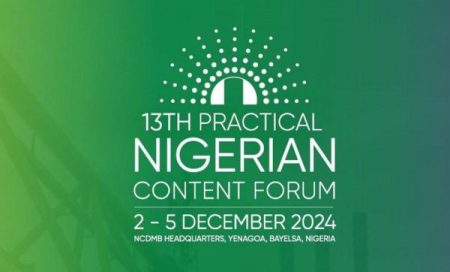 10 November 2014, Sweetcrude, Lagos – The dynamics of the global energy and hydrocarbon industry is such that nations and organisations that want to remain relevant ensure that they are a viable subset of the global economy (the whole). In terms of policy, fiscal regime, profitability, security and rate of return on investment, Nigeria is fast becoming a cause for concern for potential investors because projects that were once considered as “The Jewel in the Crown” of the global hydrocarbon community have been delayed or stalled.
10 November 2014, Sweetcrude, Lagos – The dynamics of the global energy and hydrocarbon industry is such that nations and organisations that want to remain relevant ensure that they are a viable subset of the global economy (the whole). In terms of policy, fiscal regime, profitability, security and rate of return on investment, Nigeria is fast becoming a cause for concern for potential investors because projects that were once considered as “The Jewel in the Crown” of the global hydrocarbon community have been delayed or stalled.
Major issues in Nigeria that have caused delays in projects include: (a) Risks of contracts being breached. (b) Passage of a PIB with competitive fiscals. (c) Government regulations (duplicity of roles in government). (d) Lack of adequate joint venture funding. ( Approx. $7b /annum). There is a possibility that resolving JV funding could increase gas production by 2.8 billion cubic feet per day by 2020. (e) Implementation of the gas master plan in coordinated phases that would yield a maximum return on investment (f) Threat to security of lives and property and (g) A lack of tax holidays and attractive incentives. (h) Non-conducive business environment, (i) inappropriate gas pricing that would allow domestic price fiscals support private sector infrastructure and NAG development.
The NNPC website boasts proudly of a Greenfield Refinery Initiative (GRI) and we are informed that: “Recent Studies by stakeholders in the industry have revealed that a new refining capacity of at least 420 KBPD would be required to meet the existing refining gap. If this gap is projected to 2016 at the growth rates of between 3% and 5% per annum, the estimated refining gap in Nigeria by 2016 would be 500-560 KBPD. This forms the basis of the current effort to establish at least three (3) new refineries of approximately 400-550 KBPD capacity in Lagos, Bayelsa and Kogi States”. As far back as May 2010, an agreement was signed by the Federal Government with the China State Construction Engineering Corporation (CSCEC) to construct these three Greenfield Refineries at the cost of $23 billion, equivalent to N3.7 trillion with a completion period of five years. Tragically, no tangible work has been executed at any of the three project sites with less than a year to the end of the period projected for completion of the refineries (May 2015).
In addition to these gaps, it is estimated that the delay in the development of both the Olokola (conceived in 2007) and Brass LNG (conceived in 2004) projects has prevented Nigeria from earning over $3.5billion revenue per annum and denied Nigerians about 50,000 jobs during the projects construction. Nigeria’s poor performance and NNPC’s inability to deliver a better standard of living to the masses in Nigeria, through clear midstream divisions such as: Greenfield Refinery Initiative, Refineries and Petrochemicals, Nigerian Gas Master plan, Renewable Energy, Gas & Power etc, lies on the Minister. Ironically, “We touch your lives in many positive ways” stands out on the home page of NNPCs website.
The NNPC’s Group Managing Director, Joseph Thlama Dawha, admits that the development of the huge gas resources in the country’s offshore would help in fostering the energy sector’s growth. He is hoping for an integrated approach to ensure that much of the gas being found in deep offshore is made available for LNG projects and that the three LNG projects will be fed from offshore assets. Unfortunately they are still working on a master plan whilst stating their commitment to making sure that gas is available and affordable domestically.
Mrs. Elisabeth Proust, Managing Director of Total Exploration and Production Nigeria Limited at the SPE Conference in August 2014 stated that Nigeria has inadequate infrastructure across the hydrocarbon value chain, such as: production and processing facilities, pipelines, power generation, transmission, and distribution. She also explained that while current prices rarely support the cost of infrastructure, uncompetitive pricing and fiscals hinder the much needed investment to pursue power agenda.
With Nigerian Content being a part of the overall project development and management philosophy for project execution in: “any project, operation, activity or transaction in the Nigerian oil and gas industry” one wonders how this laudable progress would be sustainable when capital projects are being stalled or delayed.
*Dr. Ibilola Amao is the Principal Consultant with Lonadek Limited, a firm of local content consultants with their core competence in the area of Technical Talent Identification, Development and Engagement. To reach Dr. Amao, you can email her at [email protected] and for more information visit www.lonadek.com



